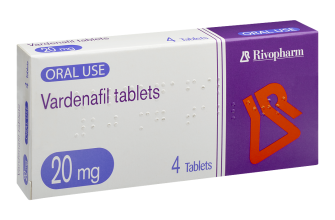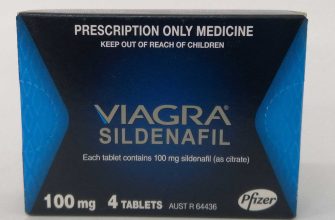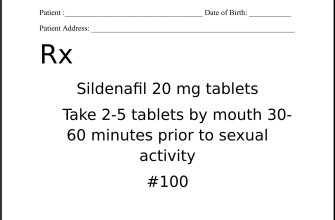Choosing a generic equivalent for Nexium can offer significant cost savings without sacrificing effectiveness. The generic name for Nexium is esomeprazole, which is specifically designed to reduce stomach acid and provide relief from conditions like gastroesophageal reflux disease (GERD).
When considering the switch to a generic, look for formulations that match the original’s dosage and release characteristics. Brands like Esomeprazole Magnesium and other reputable generics have been proven to have the same active ingredient and therapeutic effects. Always consult with a healthcare provider before making the transition to ensure the choice aligns with your specific health needs.
Monitor your response to the generic medication closely. Many patients find that generics work just as well as their brand-name counterparts. If any issues arise, such as side effects or lack of symptom relief, communicate with your doctor for possible alternatives or adjustments.
- Nexium Generic Equivalent
- Understanding Nexium and Its Uses
- Primary Uses of Nexium
- Dosage and Administration
- What Is a Generic Equivalent?
- List of Available Nexium Generic Options
- Available Dosages
- Manufacturer Options
- Comparative Effectiveness of Nexium and Its Generics
- Clinical Trials and Research Findings
- Cost Considerations
- Cost Differences: Brand Nexium vs. Generic Alternatives
- Insurance and Discounts
- Long-term Savings
- Safety and Side Effects of Nexium Generics
- Serious Side Effects
- Long-Term Use Considerations
Nexium Generic Equivalent
The generic equivalent of Nexium is esomeprazole. This medication effectively treats conditions such as gastroesophageal reflux disease (GERD), peptic ulcers, and Zollinger-Ellison syndrome. Esomeprazole functions by reducing stomach acid production, providing relief from symptoms associated with excessive acidity.
Patients often seek out the generic form of Nexium due to its cost-effectiveness. Generally, generics are priced lower than their brand-name counterparts while maintaining the same quality and efficacy. When considering a switch to esomeprazole, it’s advisable to consult with a healthcare professional to ensure appropriate dosing adjustments. The standard dosages for esomeprazole typically range from 20 mg to 40 mg, depending on the specific condition being treated.
Here’s a brief comparison of Nexium and its generic equivalent:
| Aspect | Nexium (Esomeprazole Brand) | Generic Esomeprazole |
|---|---|---|
| Active Ingredient | Esomeprazole magnesium | Esomeprazole |
| Formulation | Delayed-release capsule/tablet | Delayed-release capsule/tablet |
| Cost | Higher | Lower |
| Insurance Coverage | Often covered | Often covered |
| Efficacy | Proven | Proven |
Choosing between Nexium and the generic version depends on factors like personal preference, cost considerations, and insurance coverage. Transitioning to esomeprazole should not compromise treatment quality. Consult a healthcare provider for guidance tailored to individual health needs.
Understanding Nexium and Its Uses
Nexium, generically known as esomeprazole, serves primarily as a proton pump inhibitor. It reduces stomach acid production and is beneficial for individuals suffering from various gastrointestinal conditions.
Primary Uses of Nexium
- Gastroesophageal Reflux Disease (GERD): Nexium effectively manages symptoms such as heartburn, regurgitation, and difficulty swallowing associated with GERD.
- Peptic Ulcers: It aids in the healing of peptic ulcers, allowing the stomach lining to recover while minimizing acidity.
- Zollinger-Ellison Syndrome: Nexium assists in treating this rare condition characterized by excessive stomach acid production.
- Prevention of Ulcers: Prophylactically, it can be used to prevent ulcers in patients taking nonsteroidal anti-inflammatory drugs (NSAIDs).
Dosage and Administration
Nexium typically comes in delayed-release capsules or oral suspension. Common dosages range from 20 mg to 40 mg daily, depending on the condition being treated. Always adhere to the physician’s specific instructions and avoid self-medicating.
Monitor for potential side effects, which may include headache, nausea, diarrhea, and abdominal pain. If severe reactions occur, such as allergic symptoms or liver issues, seek medical attention immediately.
For optimal results, maintain a consistent schedule when taking Nexium. Adjustments to lifestyle, such as dietary changes and weight management, can enhance treatment outcomes. Consult a healthcare professional for advice tailored to individual health needs.
What Is a Generic Equivalent?
A generic equivalent is a medication that contains the same active ingredient, dosage form, and strength as a brand-name drug. It is designed to work the same way in the body, providing the same therapeutic effect. Generic drugs are typically more affordable because they don’t have the high research and marketing costs associated with their brand-name counterparts.
Multiple generic formulations of Nexium exist, providing alternatives for those seeking effective treatment for gastroesophageal reflux disease (GERD) and other conditions. The primary generic is esomeprazole, which comes in a variety of dosages to accommodate different patient needs.
Available Dosages
Esomeprazole is typically available in 20 mg and 40 mg dosages. You can choose between delayed-release capsules or oral solution forms. Consult with a healthcare provider to determine the most suitable dosage based on individual health requirements.
Manufacturer Options
Several manufacturers produce esomeprazole generics. Some notable names include Teva Pharmaceuticals, Dr. Reddy’s Laboratories, and Mylan. Each manufacturer may offer different pricing and availability, so check with local pharmacies for specific options.
Comparative Effectiveness of Nexium and Its Generics
Nexium shows comparable efficacy to its generics. Both formulations effectively reduce gastric acid production, providing relief from conditions like gastroesophageal reflux disease (GERD) and peptic ulcers. Numerous studies indicate no significant difference in safety or overall therapeutic outcomes between Nexium and its generic counterparts.
Clinical Trials and Research Findings
Clinical research demonstrates that generics, like esomeprazole magnesium, match Nexium in treating bloating, heartburn, and related symptoms. A meta-analysis of various trials reveals similar patient satisfaction rates across both options. Generic formulations maintain the same active ingredient and dosage, further ensuring consistent performance.
Cost Considerations
The affordability of generics plays a large role in patient choice. With lower price points, generics provide an accessible alternative while delivering similar health benefits. This cost-effectiveness makes generics an attractive option for long-term treatment plans without compromising quality.
Ultimately, choosing between Nexium and its generics often boils down to personal preference and financial considerations, as both options reliably manage and alleviate symptoms associated with acid-related disorders.
Cost Differences: Brand Nexium vs. Generic Alternatives
Brand Nexium typically costs significantly more than its generic counterparts, such as esomeprazole. Prices for brand Nexium can range from $200 to $300 for a month’s supply, depending on the pharmacy and dosage. In contrast, generic esomeprazole can cost between $40 and $100 for the same duration. These figures illustrate a notable difference in price, making generic options more accessible for many patients.
Insurance and Discounts
Insurance plans often cover generic medications more extensively than brand-name drugs, resulting in lower out-of-pocket costs for patients. Many pharmacies also offer discount programs and coupons for generic options, further reducing expenses. Patients should inquire about these discounts, as they can lead to substantial savings on monthly prescriptions.
Long-term Savings
Choosing generic alternatives can lead to considerable savings over time. For individuals on long-term therapy, the annual cost difference can add up to several hundred dollars. By selecting esomeprazole instead of brand Nexium, patients not only save on immediate costs but also support overall financial health concerning medication management.
Safety and Side Effects of Nexium Generics
Consult your healthcare provider before starting any Nexium generic to discuss potential side effects. Common side effects include headache, nausea, diarrhea, and abdominal pain. These symptoms usually subside as your body adjusts to the medication.
Serious Side Effects
Some individuals may experience serious side effects, such as severe allergic reactions, liver problems, or low magnesium levels. Symptoms include rash, itching, swelling, difficulty breathing, and muscle cramps. If any of these occur, seek medical attention immediately.
Long-Term Use Considerations
Long-term use of Nexium generics can increase the risk of certain conditions, including kidney disease and fractures. Regular check-ups and monitoring can help manage these risks effectively. Always communicate any new symptoms to your healthcare professional during your treatment.






